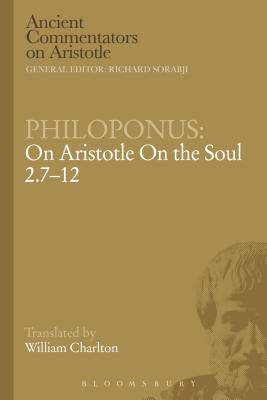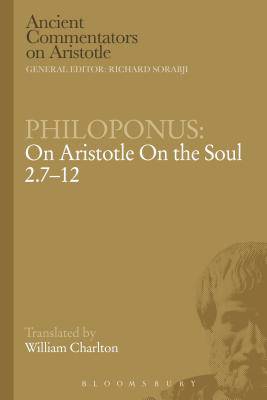
- Afhalen na 1 uur in een winkel met voorraad
- Gratis thuislevering in België vanaf € 30
- Ruim aanbod met 7 miljoen producten
- Afhalen na 1 uur in een winkel met voorraad
- Gratis thuislevering in België vanaf € 30
- Ruim aanbod met 7 miljoen producten
Omschrijving
In this, one of the most original ancient texts on sense perception, Philoponus, the sixth century AD commentator on Aristotle, considers how far perceptual processes are incorporeal. Colour affects us in the same way as light which, passing through a stained glass window, affects the air, but colours only the masonry beyond. Sounds and smells are somewhat more physical, travelling most of the way to us with a moving block of air, but not quite all the way. Only the organ of touch takes on the tangible qualities perceived, because reception of sensible qualities in perception is cognitive, not physical. Neither light nor the action of colour involves the travel of bodies. Our capacities for psychological activity do not follow, nor result from, the chemistry of our bodies, but merely supervene on that. On the other hand, Philoponus shows knowledge of the sensory nerves, and he believes that thought and anger both warm us. This argument is used elsewhere to show how we can tell someone else's state of mind.
Specificaties
Betrokkenen
- Auteur(s):
- Vertaler(s):
- Uitgeverij:
Inhoud
- Aantal bladzijden:
- 192
- Taal:
- Engels
- Reeks:
Eigenschappen
- Productcode (EAN):
- 9781472557766
- Verschijningsdatum:
- 10/04/2014
- Uitvoering:
- Paperback
- Formaat:
- Trade paperback (VS)
- Afmetingen:
- 156 mm x 234 mm
- Gewicht:
- 317 g

Alleen bij Standaard Boekhandel
Beoordelingen
We publiceren alleen reviews die voldoen aan de voorwaarden voor reviews. Bekijk onze voorwaarden voor reviews.











